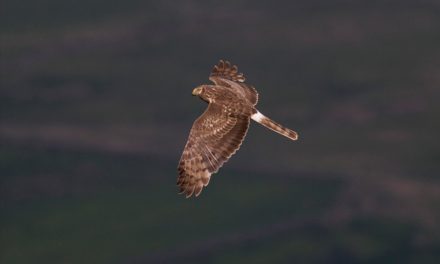
Insects causing greater levels of plant damage today

Modern-day insects are causing more damage to plants, despite declining numbers, than they did in prehistoric times, new research suggests
Insects today are causing unprecedented levels of damage to plants, even as their numbers decline, according to new research led by University of Wyoming (UW) scientists.
The first-of-its-kind study compares insect herbivore damage of modern-era plants and trees with that of fossilised leaves from as far back as the Late Cretaceous period, nearly 67 million years ago.
UW PhD graduate Lauren Azevedo-Schmidt is the research lead. Now a postdoctoral research associate at the University of Maine, she said: “Our work bridges the gap between those who use fossils to study plant-insect interactions over deep time and those who study such interactions in a modern context with fresh leaf material.
“The difference in insect damage between the modern era and the fossilised record is striking.”
Azevedo-Schmidt conducted the research along with UW Department of Botany and Department of Geology and Geophysics Professor Ellen Currano, and Assistant Professor Emily Meineke of the University of California-Davis.
The study examined fossilised leaves with insect feeding damage from the Late Cretaceous through to the Pleistocene era, a little over two million years ago, and compared them with leaves collected by Azevedo-Schmidt from three modern forests.
The detailed research looked at different types of damage caused by insects, finding marked increases in all recent damage compared to the fossil record.
“Our results demonstrate that plants in the modern era are experiencing unprecedented levels of insect damage, despite widespread insect declines,” wrote the scientists, who suggest that the disparity can be explained by human activity.
plant-insect interactions
More research is necessary to determine the precise causes of increased damage to trees and plants, but the scientists say a warming climate, urbanisation, and the introduction of invasive species have likely had a major impact.
“We hypothesise that humans have influenced (insect) damage frequencies and diversities within modern forests, with the most human impact occurring after the Industrial Revolution.
“Consistent with this hypothesis, herbarium specimens from the early 2000s were 23% more likely to have insect damage than specimens collected in the early 1900s, a pattern that has been linked to climate warming.”
But climate change doesn’t fully explain the increase in insect damage, they say.
“This research suggests that the strength of human influence on plant-insect interactions is not controlled by climate change alone but, rather, the way in which humans interact with the terrestrial landscape,” the researchers concluded.
The findings are published in the Proceedings of the National Academy of Sciences.
Image: Lauren Azevedo-Schmidt searches for fossilised plants in Wyoming’s Hanna Basin in a deposit that is about 60 million years old. She and other researchers compared fossil leaves with modern samples and found higher rates of insect damage today. © Lauren Azevedo-Schmidt.















